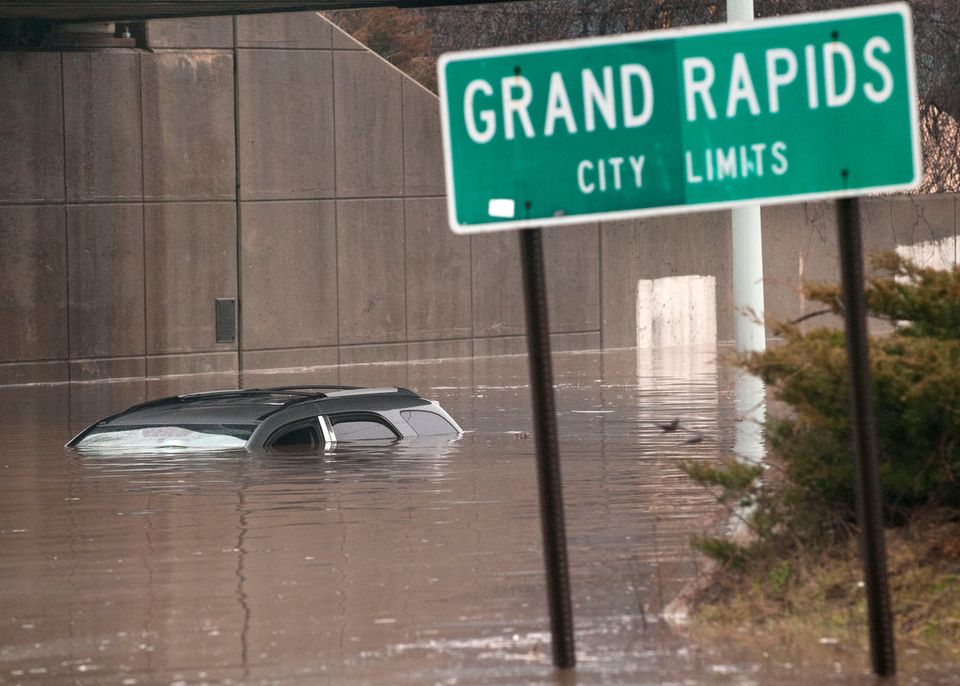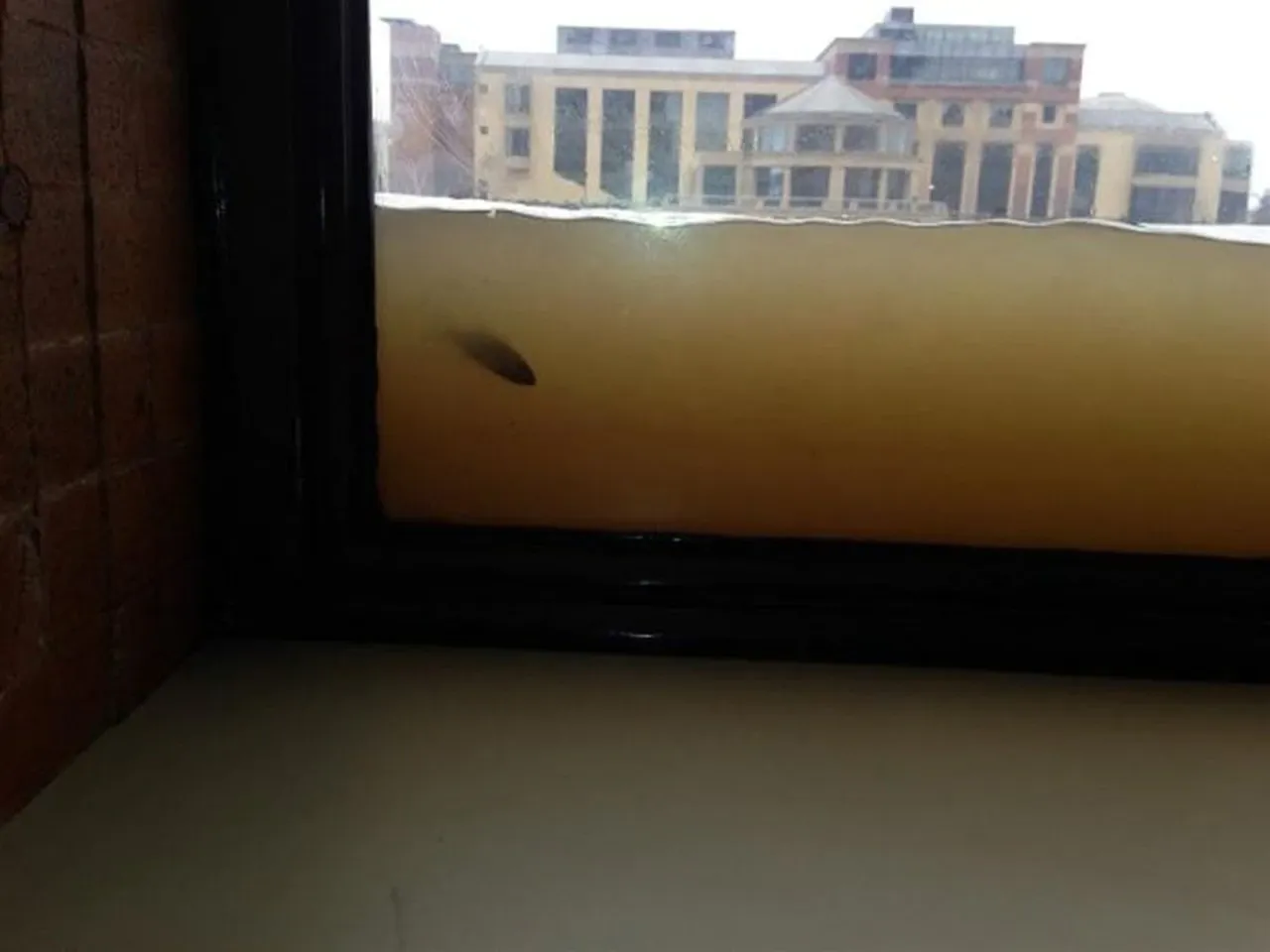Managing The City of Walker's Floodwater as the Climate Disaster Worsens

It's springtime in Michigan, and with it comes a lot of rain. The road that many Walker residents - myself included - take to Grand Rapids is flooded, again. When this happens, we turn around and take an alternate route. I learned the hard way what happens to a car that drives through a deep puddle. My house is about a mile from Millennium Park and the river. My neighborhood considers the yearly springtime flooding on our street mundane. The water never reaches our houses. Except that one time in 2013.

Thing is, the water will keep reaching our houses. The memorable and damaging flood of 2013 marked the beginning of a trend of ever-increasing rainfall and flooding in our community, due to climate change. Since 2013, precipitation in Grand Rapids has increased almost 2.6%, and is projected to reach 8.5% by 2042. Our community is, frankly, not managing the flood-water effectively even now. Each flood event carries ground-level pollution directly into the Grand River, hurting the surrounding ecosystem, our community, and the climate as a whole . When the floodwater reaches our homes, the damage is costly.
The City of Walker must prepare for increasing precipitation and flooding due to climate change. Our community is growing and developing - with increased development comes damage to our land's ability to drain extra water to the Grand River. Our man-made waterways aren't enough today and they certainly won't be enough in 20 years. We must shift the focus of our development to include green, low-impact run-off management systems. We must redesign our parks to include underground water storage systems that collect extra rainwater at its source and allow it to naturally seep out into the river. We must also provide grants to the homes in the floodwater zones, to manage the cost of floodwater adaptations before damage occurs.
The concept of underground stormwater storage isn't new. The city of Grand Rapids' Joe Taylor Park was designed with a 40-acre underground stormwater treatment facility, alongside other low-impact development elements. The park is situated at a lower elevation than the surrounding neighborhood, allowing it to take in and the extra floodwaters until it seeps through the earth. This concept imitates natural water flow in the wetlands that existed on our land before they were developed over. Water run-off is cleaned before it reaches the river, solving the pollution problems associated with our current man-made and lackluster infrastructure. Millennium Park is still under development, and is nestled right at the heart of Walker's riskiest flood zones. This location is ideal for an underground wastewater management and storage system.
Radical shifts in infrastructure development strategies like this are expensive. Concrete, man-made waterway systems are already in place and are certainly easier to utilize than the implementation of novel green strategies. Making room in the budget to fund home flood adaptation measures in Walker's riskiest flood zones is costly as well. What's the motivation? If we wait until the flooding becomes more serious, damage repair costs go up. Infrastructure changes will become much more complicated and costly, while the river is being continually polluted. We can't be sure the existing infrastructure - concrete pipes, etc. - will be keep up with the increasing water load due to climate change. We must start the conversation now. We know green strategies are effective and use less energy to construct and maintain in the long-run.
The community growth rate in Walker is likely to increase with time as well. Michigan is poised to become a climate haven in the coming decades. It's freshwater availability, paired with cooler temperatures and distance from ocean coastlines, protects our state from climate disasters like the hurricanes in Florida or the forest fires in California. Our community, nestled right between the city of Grand Rapids and Lake Michigan, will very likely see a population boom in the next 5, 10, 20 years due to the climate disaster. Designing better floodwater management systems today is the just the beginning of what's needed in order to handle climate refugee influxes of tomorrow.
I currently have an alternate route I can take when the road to Grand Rapids during the springtime floods. The City of Walker must fix the problem before it grows so large that my neighbors and I can't leave our street at all.
https://wmeac.org/wp-content/uploads/2014/10/Sustaining_Stormwater_Investment_in_Grand_Rapids.pdf
https://www.walkermi.gov/DocumentCenter/View/465/Grand-River---Yours-To-Protect-PDF?bidId=